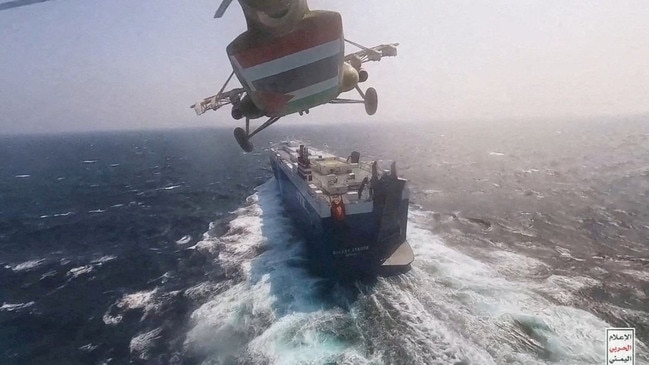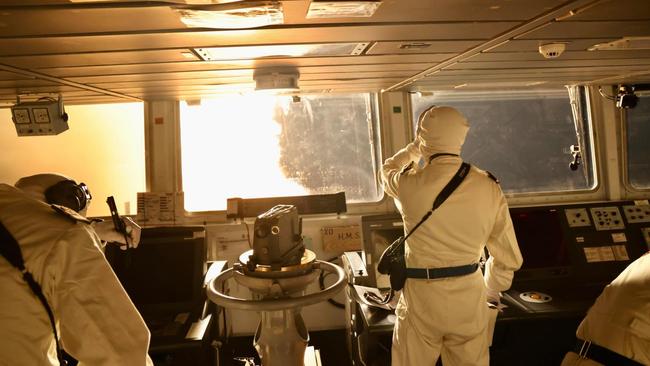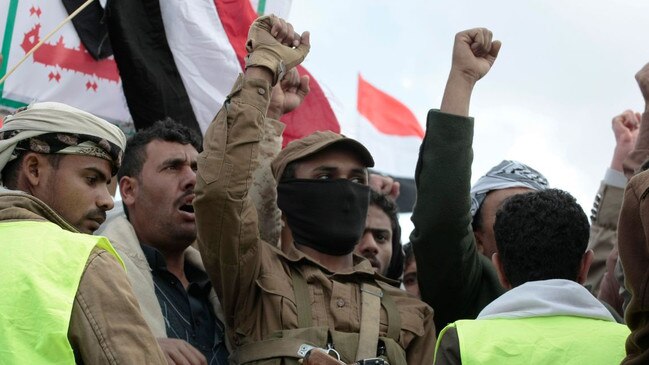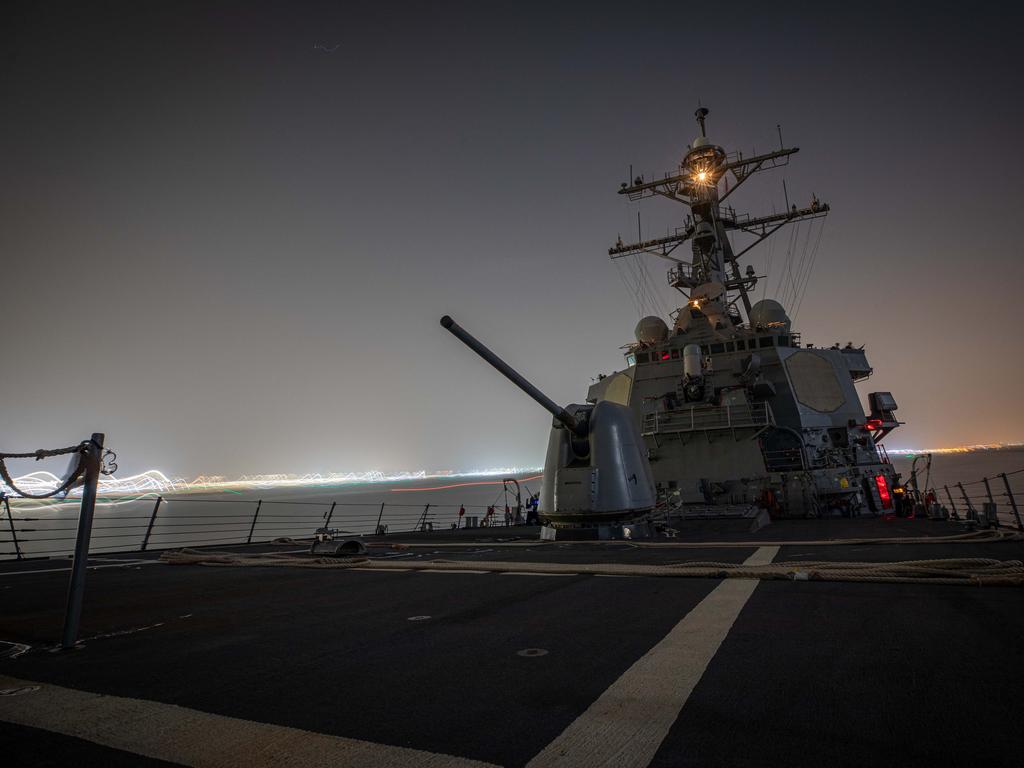Red Sea crisis the start of global upheaval

The fact is, war is everywhere, spreading across regions, turning every maritime choke point into a potential danger zone, blocking the passage of Ukrainian grain to developing countries. And then there’s the unchecked, frequently menacing build-up of Chinese naval power in Asia.
It isn’t that Davos participants have been inhabiting a snow bubble during the past half a century. They have chewed over the impact of Middle East war on oil prices and terrorism; they have invested heavily in private jets so they can fly to the Swiss Alps without fear of hijacking; they fret about dodgy regimes controlling strategic minerals.

But this year is different. Well-tailored Davos Man, whose prime concern used to be avoiding injury on icy pavements, is coming to understand that the hairy, devout and trigger-happy Houthis of Yemen are holding the global economy to ransom by bombarding vessels on the Bab al-Mandeb strait.
Shipping and container prices are soaring, goods from Asia to Europe are labouring their way expensively around the Cape of Good Hope. Insurance rates for Red Sea traffic are soaring. Big retailers are already reporting shortages.
There is still some spare capacity in the oil and container markets but the signs of congealing political crises tipping into economic downturn are multiplying. The German economy is contracting; others seem set to follow.

The Red Sea crisis has been a long time brewing. Yemen, running short of water and oil, has been a failed state for years. It was the stamping ground of the bin Laden family, a natural recruiting ground for the clan’s wayward son, Osama.
For a while it seemed as if the Yemen branch of al-Qaeda could be its future. It was driven by anger and led by frustrated young engineers who taught themselves how to blow up aircraft.
Later, Crown Prince Mohammed bin Salman of Saudi Arabia, the country’s defence minister, battered Yemen in a bombing war but failed to turn it into a loyal, respectful neighbour. Raining munitions on the country yet unable to beat the Iran-backed Houthi tribesmen, the prince lost face in the Arab world: the richest country in the Middle East unable to tame the poorest.
The Houthis demonstrated their combat skills – kitted out by Iran’s revolutionary guards and trained by instructors from its proxy militia, Hezbollah – by launching a destructive drone swarm against an expensively but incompetently defended oil installation in Saudi Arabia.
The humiliation was complete and Saudi Arabia’s vulnerability explains why it is not yet part of the US-led coalition to make the Red Sea and Suez safe for global trade. The Houthis are back; everybody knew they were coming but the sages of Davos chose to ignore them.

The hive-brain of Davos has only a short-term historical span. Remember Suez 1956? Most of the super-networkers on the Magic Mountain were not even born then (Henry Kissinger RIP). That crisis year, though, still has important lessons about changing fault lines in a world in transition.
The Egyptian leader, Gamal Abdel Nasser, nationalised the Suez Canal to tighten the Egyptian blockade of Israel. Britain and France issued an ultimatum – as the shortest ocean link between the Mediterranean and the Indian Ocean, Suez was part of the colonial supply system – but Nasser did not cave in and blocked the canal by sinking dozens of ships. Instead, pressure was heaped on Britain and France by the US, the Soviet Union and the United Nations. Cue: an embarrassing climbdown.
Thus in the 1950s came an intersection of crises: the reshaping of the US-Soviet Cold War (no western intervention when the Hungarian uprising was brutally crushed in November 1956), a parallel cold war between Arab states, an upsurge of Arab nationalism against the old colonial powers, and a lasting tension between Arab states and Israel.
The parallels with the 2020s are not perfect and much will depend on who becomes the next president of the United States. But if there is to be a new cold war, it will likely, under a Trump administration, be between Washington and Beijing. If so the vital maritime choke point could become the Strait of Malacca. But even the Red Sea upheaval is having an impact on China’s trade with Europe.

Volodymyr Zelensky, the Ukrainian leader, appeared at Davos on Tuesday to plead for more concerted action against the import of Russian oil. This is the Zelensky dilemma: he has to urge the infliction of economic pain on Russia with the help of concerted western support, but at the same time he has to present Russia as a shrinking and beatable power.
Davos Man, though, still worries about what will happen if a thwarted Vladimir Putin gives way to something even worse. The parallel with Hungary in 1956: the West could end up looking away, accepting that Ukraine in one form or another belongs to the Russian sphere of interest.
The tension between Israel and the Arab states is no easier to wish away now than it was in 1956. Much will depend on how Iran uses its so-called octopus, its many proxies that have been tuned by Tehran to interact and accumulate unbearable pressure on the Israeli government and its backers.
Grant Shapps, the UK defence secretary, said in a notable speech this week that the world was shifting from post-war status to pre-war. That’s something worth discussing on a Swiss mountain top.
The Times





Security is tighter than usual at the Davos gabfest in Switzerland this year, perhaps because the penny has finally dropped for the business elite: globalisation, the conference’s guiding creed, is in the crosshairs.